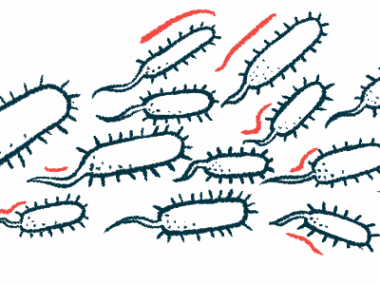Lung and Nutritional Health, Like CF Mutation, Can Affect Lifespan
Written by |

Inadequate nutrition, poorly working or chronically infected lungs, and mutations leading to more severe disease can shorten the lifespan of people with cystic fibrosis (CF), a study in adult patients reported.
“All these factors interact with each other,” its scientists wrote. “Therefore, it is important to take into account all the analyzed factors when monitoring the course of the disease.”
The study, “The determinants of survival among adults with cystic fibrosis—a cohort study,” was published in the Journal of Physiological Anthropology by a team of researchers in Poland.
CF is caused by mutations in CFTR, a gene that codes for a protein of the same name and is essential for the production of a lubricating, watery mucus that helps keep the airways clean. There are more than 2,000 different known mutations in the CFTR gene, classed in six groups based on how they prevent the CFTR protein from working properly or even being made at all.
“The type of mutation is considered as one of the most important factors determining the survival rate,” the researchers wrote. However, other factors are also in play. In this study, the researchers looked at how a handful of factors may determine survival in CF, focusing on adults.
“The answer to the question of why some CF patients live longer than others is still unclear, which, together with the increasing number of adult patients, generates the need for research on the factors affecting the survival rate in this group,” they noted.
A group of 124 patients (68 women and 56 men), ages 18 to 41, was recruited in 2010 at a clinic in Poland and followed for nine years. All underwent exams at least annually to assess their lung health, nutritional status, and the presence of Pseudomonas aeruginosa bacteria, the most common species causing lung infections in CF patients.
All these people were alive through the age of 20. However, more than a quarter (almost 27%) did not live beyond the age of 30, and nearly half (48%) died before reaching 40, the study found.
“The period between 30 and 40 years of age is the most critical,” the researchers wrote, adding that “most exacerbations [worsening of symptoms] occurred over the period between 20 and 35 years of age.”
The type of CF-causing mutation, FEV1% (a measure of lung function, specifically the amount of air that can be forcibly exhaled in one second), BMI (a measure of body fat based on height and weight), and the presence of P. aeruginosa all determined the probability of living for a lesser or longer time.
Patients who died at younger ages had two copies of a mutation leading to more severe disease (Class 1–3 mutations in both gene copies), an FEV1% lower than 40, a BMI lower than 18.5 kg/m2 (indicating underweight), and the presence of P. aeruginosa resistant to antibiotics.
Next, the researchers used a method of analysis that allowed them to predict the likelihood of survival based on observations of this patient group.
They found that the risk of death increased by two times for patients who had a mutation leading to severe disease, almost six times when FEV1% fell below the normal range (around 75), and more than four times when BMI fell below the normal range of 18.5 to 24.9 (a low BMI, one under 18.5, reflects an undernourished status). It also rose by two times in the presence of P. aeruginosa and by eight times if the bacteria were resistant to antibiotics.
Overall, “the probability of survival among adults with CF is a result of both genetic and environmental factors contributing to the course of the disease,” the researchers concluded.
In this study, patients living beyond the age of 40 had an unknown mutation or a mutation leading to mild disease, normal or moderate lung function, a healthy weight, and were free of infection by P. aeruginosa or infected with strains responding to antibiotic treatment.







